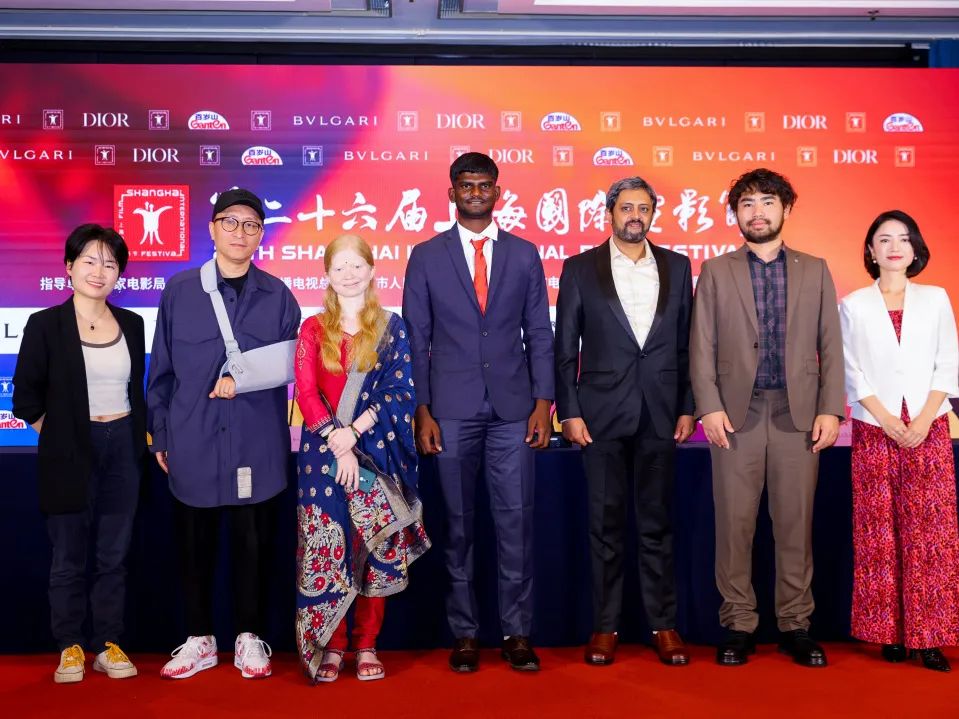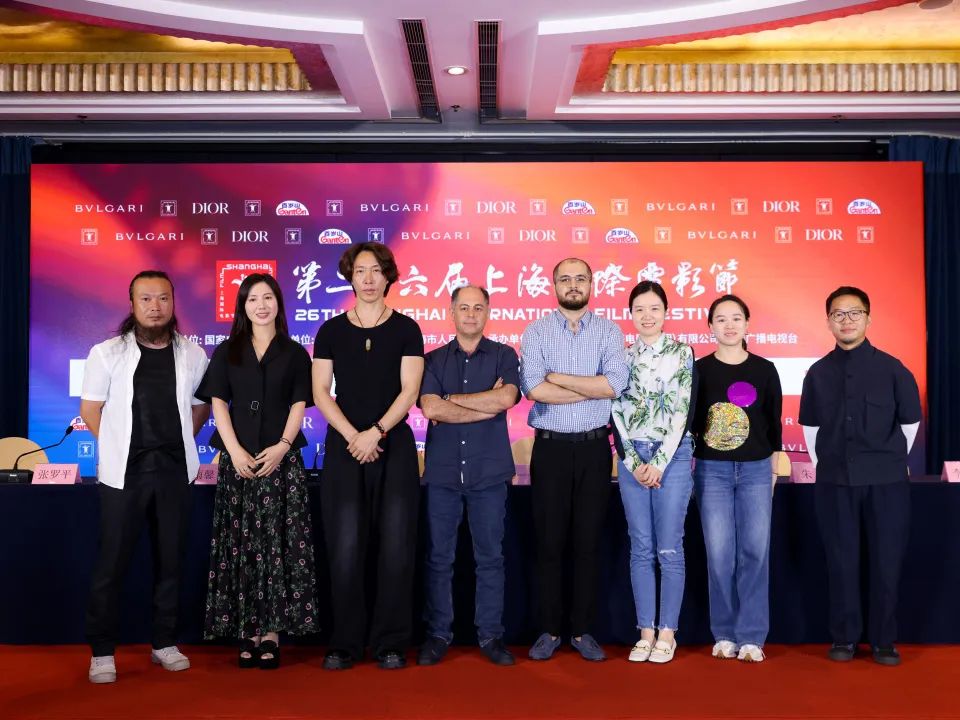Asian New Talent | Voices of Asia's Cinematic Future
On the afternoon of June 18, the 26th Shanghai International Film Festival (SIFF)'s Golden Goblet Awards - Asian New Talent section held a meet-and-greet with the creators of the 11 nominated films. This section, dedicated to discovering new directors and supporting emerging Asian cinema, celebrated its 20th anniversary this year. As the nominated films premiered one after another, they quickly garnered positive reviews.




Starting Point: Hometown as the Origin of Creation
A hometown is always the starting point and a vital source of inspiration for creation. Born and raised in Xinjiang, female director Lu Dan set her first film, THE ABSENT, in her hometown. The film delicately tells the story of a long-absent Russian photographer, a Han Chinese girl wandering in search of her father, and a reclusive Tatar accordionist, who all unexpectedly meet in a northern town in winter. Lu Dan explained, "During my college years, some incidents occurred, and I wrote this story as a way to find an outlet." The brief interactions among the three characters during their darkest moments in life present intertwined arcs of growth and ultimately lead them to their own redemption, reflecting Lu Dan's real-life experiences.

Kazakh female director Malika Mukhamejan, who was nominated in the Short Film Competition last year, shortlisted for the Asian New Talent section with her feature debut LONGER THAN A DAY. The film focuses on a horse ranch on the Kazakh steppe, where the protagonist Karlygash transitions from emotional dependence to solitary escape, and finally to bravely stepping into an uncertain future. Mukhamejan explores how women confront loneliness through Karlygash's story of love, separation, and courage, hoping to show the resilience and confidence of contemporary women.

Indian director Abhilash Sharma, in his second feature film IN THE NAME OF FIRE, uses black-and-white imagery to portray the despairing lives of India's lower class. Although the film conveys an overall sense of oppression and desolation, Sharma leaves a touch of color in the final scene. "A film must give the audience a glimmer of hope; there are still many colors to be seen in the future," he noted.

Japanese director Takuro Ijichi, a graduate of the Beijing Film Academy, developed a critical perspective on Japanese culture during his studies in China. His film VICISSITUDE is based on his teenage experiences, using a semi-documentary style to deeply explore the impact of educational pressure, social competition, and meritocracy on mental health in Japan. "Through this film, I hope to showcase the beauty of nature, call for relief from societal pressures, and encourage an appreciation of life's beauty," he explained.

Returning to Humanity: Focusing on the Most Intimate Mother-Daughter Relationships
Directors Zang Lianrong and Xu Ruogu's THE ROAD HOME was previously nominated for Best Cinematography and Best Actor in the Asian New Talent section at the 22nd SIFF. This year, they return with their new work THE LOST DAUGHTER, once again shortlisted for the Asian New Talent section. Zang Lianrong mentioned that the inspiration for the film came from a news story about a girl searching for her mother. Centered around Duan Aojuan's portrayal of a rebellious teenager, the film aims to address various social issues such as gender discrimination, workplace bias against women, and school bullying. "We hope this film will provoke more thought on gender issues, family problems, and ultimately highlight the warmth of human nature," added producer Liu Fan.

Director Zhang Xuyu's short film FISHBONE had been selected for over twenty domestic and international film festivals. His feature debut, which is among the top five winners of the "CFDG Young Director Support Program", continues this success. Zhang mentioned his desire to write a story about youth and family, noting that the mother-daughter relationship offers a powerful perspective on family dynamics. The film skillfully uses various metaphors to represent the characters' psychological states, portraying the complex love-hate relationship between mother and daughter.

Similarly, DREAMING OF MOTHER AND HOME focuses on the traditional mother-daughter relationship. Adapted from Zhao Yu's novel of the same name, the film follows the protagonist as she returns to her now unfamiliar hometown to accompany her ailing mother through her final days. During this time, she reflects on her mother's youth and love, confronting the rebellion and persistence within their relationship.
Bold Innovation: Seeking Breakthroughs Beyond Traditional Frameworks
Director Zhang Luoping’s feature debut SUN FLOWER was nominated for Best Cinematography in the Asian New Talent section at the 21st SIFF. His latest self-written and directed work, HABITAT continues his high standards for imagery, color, and composition. "The unique feature of our film is how we use color to serve the story, allowing the cinematography to flow seamlessly within the narrative," Zhang explains. The film gradually reveals the protagonist Liang Yan’s reassessment of friendship, love, marriage, and responsibility through dual perspectives of a woman and a wife.

FRIDAY, FUNFAIR is the first feature film by well-known commercial director Zeng Zhi. As a film focusing on female growth, Zeng did not emphasize the opposition between genders but rather used the male perspective as a mirror to reflect the survival struggles of middle-aged women in confined spaces. Zeng mentions, "The purpose of making this film is to let the audience understand or see some hidden aspects beneath the surface. I wanted to explore stories of people gradually drifting away from life under daily pressures."

BIRD OF A DIFFERENT FEATHER centers on a minority group, telling the story of an albino girl’s journey of growth. Director Manohara K makes his directorial debut by adapting award-winning novelist Sonia S's autobiographical work. The film does not look at the protagonist with sympathy but rather presents her situation with a certain detachment. "I want to show that life always holds hope and light ahead. This was the inspiration and intention behind my creation," Sonia S explains, highlighting her shared vision with the director.

Iranian cinematographer-turned-director Masoud Amini Tirani uses a pseudo-documentary style to create a suspenseful thriller, 3 DAYS, 3 MURDERS. By depicting a violent event filled with dramatic conflict, Tirani aims to address the global issue of violence. "Through our film, we hope to prompt discussions on ways to resolve violent conflicts," he states.










